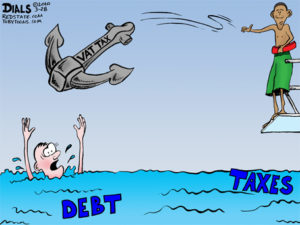November 27, 2017
 While it is hard to imagine, a crime that we see committed over and over, are crimes against elderly people by way of fraud and other forms of exploitation. Not only is this illegal, but it is also immoral and it is hard to imagine something like this happening to someone we know and love. At Freedom Debt Relief, we want to help caregivers and loved ones to avoid the older people in their lives from becoming victims of elder exploitation.
While it is hard to imagine, a crime that we see committed over and over, are crimes against elderly people by way of fraud and other forms of exploitation. Not only is this illegal, but it is also immoral and it is hard to imagine something like this happening to someone we know and love. At Freedom Debt Relief, we want to help caregivers and loved ones to avoid the older people in their lives from becoming victims of elder exploitation.
Sadly, a recent study Freedom Debt Relief reviewed shows that almost $3 billion is fraudulently exploited out of seniors each year. That is each and every year. This is a huge loss of money for people who generally live on a fixed income and this reduced income can spell disaster for the person’s ability to meet their daily needs. While it would be nice to think that this is rare, the numbers just don’t bear that out.
As Freedom Debt Relief found out, 1 out of every 5 people over the age of 65 has or will suffer from some form of elder fraud. This is a huge number and it means that, chances are, you or an older person you love could also be a victim of these predatory processes. What follows are just a few tips and hints on how to manage your own, or help the older person in your life manage their finances in a way that reduces the likelihood of becoming a victim.
Cognitive Decline and Finances
One thing that Freedom Debt Relief found is that those who are of advanced age (80+), as well as those who are suffering from some form of cognitive decline are far more likely to be victims of fraud than those who do not. If you start to notice that your memory isn’t what it once was, or if you are a caregiver who notices this about a loved one, you might want to turn over control of the finances to someone who can manage it. This will reduce the likelihood that your finances or your loved one’s finances are compromised as a result of someone taking advantage of their decline.
Avoid Scams
While Freedom Debt Relief knows that we want to be able to trust in the kindness of others, the sad fact of the matter is that there are people out there that are looking to scam people. You need to be wary of anyone who is selling something that seems to good to be true or that comes along, promising that, for a fee, they will be able to solve all your problems. Older people are far more likely to be targets and victims of such scams as they tend to not be as technically savvy and are more likely to trust other people.
Freedom Debt Relief notes that being open with your finances with someone you trust as you get older is just a smart way to help avoid becoming a victim to fraud. Being willing to turn over your finances to someone you trust if you start to notice some memory slips could ultimately save you your entire savings. Be skeptical and wary of anyone who is trying to sell you something that seems way too good to be true or anyone who thinks they can solve your problems (for a fee, of course) and make your world as good as new. Maintain a high degree of skepticism and enlist the help of someone you trust when making big decisions.
Tags:
budgeting,
Cash Flow,
debt freedom,
Debts,
economy,
financial planning,
money,
personal finance,
savings
July 26, 2017
 Equity-linked saving schemes, or ELSS, are essentially close ended mutual fund schemes that offer tax benefits under the section 80C of the Income Tax Act, which means that you can reduce your tax liability. Such funds do not have any restriction on number of shares issued. They are diversified thereby allocating capital in a variety of assets in a way that reduces exposure to risk thereby mitigating loss schemes offered through mutual funds.
Equity-linked saving schemes, or ELSS, are essentially close ended mutual fund schemes that offer tax benefits under the section 80C of the Income Tax Act, which means that you can reduce your tax liability. Such funds do not have any restriction on number of shares issued. They are diversified thereby allocating capital in a variety of assets in a way that reduces exposure to risk thereby mitigating loss schemes offered through mutual funds.
The unique feature of this scheme is that one can avail a maximum deduction of Rs. 1.5 lakh invested into these funds from his/her income during a financial year. This in turn, would help in saving tax of up to Rs. 46,350/- (if one falls in the highest income slab) during a financial year. ELSS also offers greater liquidity as the lock in period in these funds is only 3 years in comparison to PPF which has lock in period of 15 years. Further, by choosing for the ‘Dividend Payout’ option in the ELSS, investors can receive tax free dividends from their investment prior to the maturity of the scheme. Thus, these funds are efficient tax saving investments with the least lock in period and a superior performance track record.
This is a hugely underappreciated advantage of investing in an equity-linked saving schemes. Many prefer instruments such as Public Provident Fund, life insurance policies that are comparatively long term instruments where the primary goal of investing is either safeguarding your loved ones after you are no more or in the case of PPF whereby the idea to save for retirement.
While one can look at ELSS purely from a tax saving perspective of saving taxes, they can also serve as investments towards long term goals. The equity element in ELSS allows investors to systematically create wealth in the long run.
Tags:
Cash Flow,
Debts,
economy,
Funding,
investments,
money,
Mutual Funds,
personal finance,
tax
June 30, 2017
 What is a personal loan?
What is a personal loan?
Personal loans are unsecured loans. A lack of collateral, like a car of house, is what makes unsecured loans different from secured loans. Unlike a mortgage or student loans, a personal loan is personal. And unlike like other loans, it can be used at your discretion.
Personal loans are most ideal for long-term purchases. Which is unlike something like a payday loan that is more short-term. Personal loans can also be used for debt consolidation, to finance vacations, or even unexpected expenses like home repairs. They can even be used towards real estate, like one of those forest beach homes for sale.
A personal loan, that you can use at your discretion, sounds good. But there are some things to consider before taking out such a loan.
Does it make sense for me?
Before you consider a personal loan, you need to ask yourself why you need the loan. And if a personal loan is the type of loan you need. As mentioned above, a personal loan is ideal for more long-term purchases or consolidating high-interest debt. If you’re not looking to consolidate debt, or need a little help purchasing one of those forest beach homes for sale, it might not be worth it.
Do I qualify?
After you’ve considered whether a personal loan is right for you, next is to determine if you qualify for one. These qualifications can vary by lender. For example, credit ratings, maximum debt-to-income, and interest rate. Typically requirements can be:
A credit rating between 640 and 750
A maximum debt-to-income ratio of up to 45% (depending on loan amount, income, and credit rating)
An interest rate from 8.5% to 18% (which also depends on your credit rating)
What are the Interest Rates?
A personal loan could be a great way to save on high-interest debt from credit cards. Depending on your credit rating you could be eligible for low interest rates on your personal loan. A lower interest rate could save you a lot of money in the long term. It might even be beneficial for you to shop around, to find the best deal available to you.
Are the fees and terms associated with the loan?
When a applying for a loan, it’s important to do your research. Before you sign to anything, make sure you’ve read and understood everything outlined in the loan agreement. Is there a term agreement? Or are there any fees associated with the loan?
A personal is debt!
A personal loan sounds great on paper, and in the grand scheme of things. It has the potential to offer you a great solution to a problem. But it’s important to remember that it’s still a loan, and therefore a form of debt. Debt that eventually needs to be paid off.
How do you plan to pay it off?
As mentioned above as great a solution a personal loan sounds, it’s important to remember that it’s still a form of debt. And like all debt, it can easy for it to get out of hand. When you’re looking into getting a personal loan, it’s important to have a plan for paying it off. A personal loan has the potential to simplify a sticky situation, and if not used appropriately it could make a sticky situation stickier.
Tags:
budgeting,
Debt Consolidation,
Debts,
economy,
financial planning,
investments,
money,
personal finance
June 16, 2017
 It can be difficult to make the decision to file bankruptcy because most people are afraid of the unknowns associated with actually filing a bankruptcy claim and becoming insolvent. It’s scary to think that you could lose your house or your car, or any other valuable asset you have, and so a lot of people put off filing for bankruptcy for as long as possible; unfortunately, this usually only perpetuates the situation. What’s more, some people finally make the decision to file for bankruptcy and then find out they don’t actually qualify for it. It’s important to get the facts straight so you can decide what is right for you. Once you do make the decision to file for bankruptcy, you’ll want to start working toward the rest of your life.
It can be difficult to make the decision to file bankruptcy because most people are afraid of the unknowns associated with actually filing a bankruptcy claim and becoming insolvent. It’s scary to think that you could lose your house or your car, or any other valuable asset you have, and so a lot of people put off filing for bankruptcy for as long as possible; unfortunately, this usually only perpetuates the situation. What’s more, some people finally make the decision to file for bankruptcy and then find out they don’t actually qualify for it. It’s important to get the facts straight so you can decide what is right for you. Once you do make the decision to file for bankruptcy, you’ll want to start working toward the rest of your life.
Get Passed the Shame
There is no shame in reaching out to a Licenced Insolvency Trustee to discuss the option of bankruptcy. Once you have discussed your options and it is decided that you will file for bankruptcy, your credit counsellor can help you determine how to move forward. They will talk you through what the next few weeks, months or even years may look like for you in terms of your financial standings, and you can start to put together a plan to get back on your feet.
Work Toward Goals
Now that the bankruptcy has been filed, it can seem overwhelming to think that you need to start rebuilding your financial status. It’s important to have a list of things you want to work toward; for example, make a long term plan for holding a credit card again. Make a short term plan of building a savings account for yourself so you can cushion unforeseen financial issues in the future.
Talk to Your Family
Part of declaring bankruptcy is that you’ll need to attend some kind of counselling sessions; it will be important to your claim that you do this. What’s more, you should have a frank and honest conversation about your finances with your closest family members so they can understand what is happening to you and perhaps can help you. At the very least, having someone to talk to about what is going on can help you deal with it.
Don’t Give Up
Some people think that filing for bankruptcy is the end of the world. It is just a process by which you can hit the refresh button on your finances – in its simplest terms. Good and honest people often find themselves having to file for a bankruptcy because their finances have gotten out of their control. It doesn’t mean you are a bad person or you don’t deserve to have anything ever again. A series of bad choices or circumstances got you here, but you don’t have to stay in that place.
If you aren’t sure if bankruptcy is right for you, consult a Licensed Insolvency Trustee and they will walk you through the criteria and help you determine if you need to file a bankruptcy claim. While it seems like it’s very unfortunate, you will be able to get through it with the help of your credit counselor.
Tags:
Bankruptcy,
banks,
budgeting,
credit,
Debts,
economy,
financial planning,
money
April 14, 2017
 Holiday plans are often spontaneous and happen when you’re desperately in need of a break from the monotony of your life. Suppose you are planning a family vacation when your spouse or kids have holidays but your funds are a bit tied up. Should you postpone your vacation till you have the money? Absolutely not! Instead of being disheartened by thinking that you do not have sufficient funds at the moment, you can simply plan a vacation with a personal loan.
Holiday plans are often spontaneous and happen when you’re desperately in need of a break from the monotony of your life. Suppose you are planning a family vacation when your spouse or kids have holidays but your funds are a bit tied up. Should you postpone your vacation till you have the money? Absolutely not! Instead of being disheartened by thinking that you do not have sufficient funds at the moment, you can simply plan a vacation with a personal loan.
You can finance your travel smartly by availing a personal loan. Based on your credit history& income source, the eligibility and amount will be determined and accordingly the tenure and repayment conditions for the loan will be laid out. Salaried individuals find it easier to avail personal loans as compared to self-employed businessmen. However, if you have filed tax returns & all company documents are in place, even self-employed individuals can avail a personal loan without providing collateral.
An online personal loan is extremely easy to avail and rarely require any form of collateral. If you meet the eligibility criteria set by the lending institutions and have the necessary documentation in place, there is a definite chance your application will get an approval. In fact, these days online personal loans can be completely paperless with online submission of scanned id and residence proof.
How do personal loans compare with credit card EMIs? There are tax benefits for personal loans. You can claim income tax benefit under Section 24 on personal loan which offers an overall interest benefit of 1.5 lacs for tax exemption. In addition, extending your credit card to finance your travel is not a good idea as they have predefined credit limits that may not suffice the amount you need for your travel.
Tags:
budgeting,
Debts,
loans,
money,
personal finance,
savings,
tax
 While it is hard to imagine, a crime that we see committed over and over, are crimes against elderly people by way of fraud and other forms of exploitation. Not only is this illegal, but it is also immoral and it is hard to imagine something like this happening to someone we know and love. At Freedom Debt Relief, we want to help caregivers and loved ones to avoid the older people in their lives from becoming victims of elder exploitation.
While it is hard to imagine, a crime that we see committed over and over, are crimes against elderly people by way of fraud and other forms of exploitation. Not only is this illegal, but it is also immoral and it is hard to imagine something like this happening to someone we know and love. At Freedom Debt Relief, we want to help caregivers and loved ones to avoid the older people in their lives from becoming victims of elder exploitation.




Recent Comments